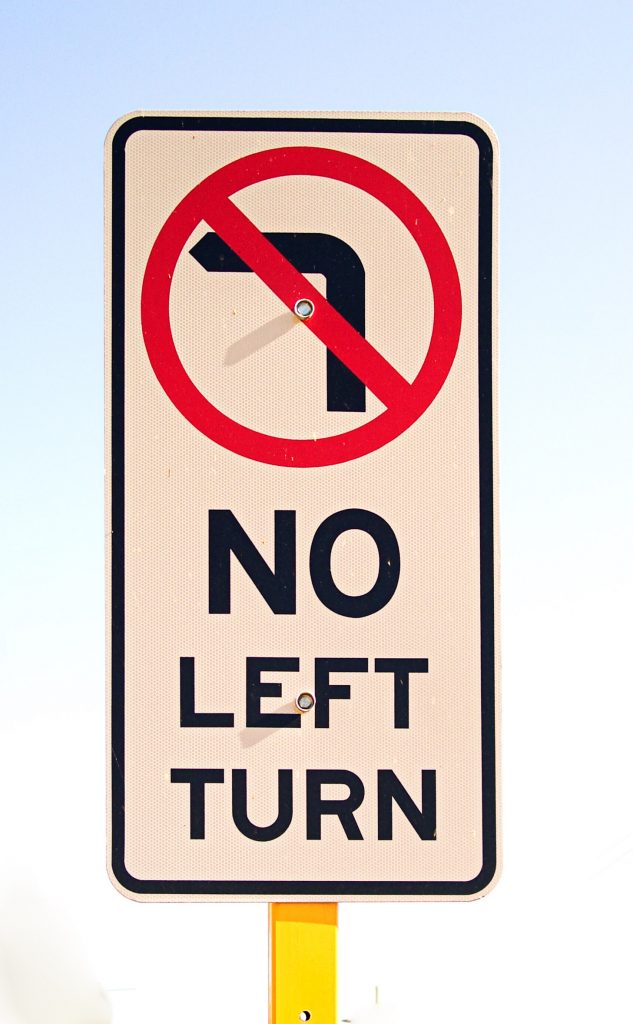 If you are involved in a motor vehicle accident while making a left turn, you are presumed to be negligent because of the dangerous nature of the turn. You will have to overcome this presumption of negligence even if you think the accident is not your fault. See Baker v. State Farm Mut. Auto. Ins. Co., 162 So.3d 405 (La. Ct. App. 2015).
If you are involved in a motor vehicle accident while making a left turn, you are presumed to be negligent because of the dangerous nature of the turn. You will have to overcome this presumption of negligence even if you think the accident is not your fault. See Baker v. State Farm Mut. Auto. Ins. Co., 162 So.3d 405 (La. Ct. App. 2015).
On October 26th, 2012, at 8:00 p.m., Latoya Leonard was driving west in Caddo Parish, Louisiana. She stopped at a traffic light at an intersection and other vehicles stopped behind her. James Lee was approaching the same intersection from the opposite direction. Leonard saw Lee’s truck from several car lengths away as it began to approach her. When the light first changed, Leonard delayed her turn as drivers behind her honked their horns. She turned left and the left portion of Lee’s front bumper collided with the back passenger side door of Leonard’s car.
The police officer who took the report of the accident gave his testimony via deposition. In his deposition, he said that his report was based solely on what he was told by the parties because he did not witness the accident and did not talk to any impartial witnesses. Lee told the officer that Leonard turned left and crossed into the westernmost southbound lane as both were beginning to turn south. Based upon what the drivers reported, the officer placed the point of impact at the westernmost, outside lane. The officer concluded that Lee was not at fault in the accident but also said that both parties should have yielded.
 Louisiana Personal Injury Lawyer Blog
Louisiana Personal Injury Lawyer Blog


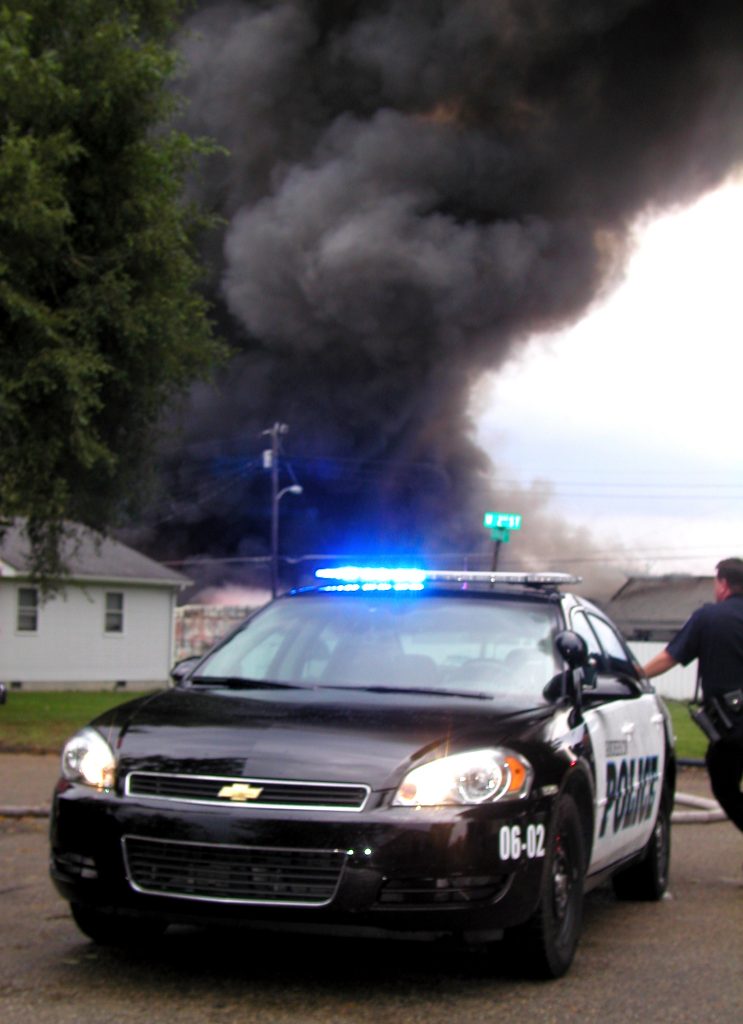 Sometimes a police report isn’t everything in a lawsuit as demonstrated by a recent incident in Bossier City, Louisiana involving a peculiar car accident. Physical evidence and eyewitness testimony in a lawsuit can trump a contradictory police report. Therefore, it is important that a person involved in such an incident immediately contacts an excellent attorney who is capable of sifting through mountains of information and presenting it in a way that exposes a potentially faulty police report.
Sometimes a police report isn’t everything in a lawsuit as demonstrated by a recent incident in Bossier City, Louisiana involving a peculiar car accident. Physical evidence and eyewitness testimony in a lawsuit can trump a contradictory police report. Therefore, it is important that a person involved in such an incident immediately contacts an excellent attorney who is capable of sifting through mountains of information and presenting it in a way that exposes a potentially faulty police report.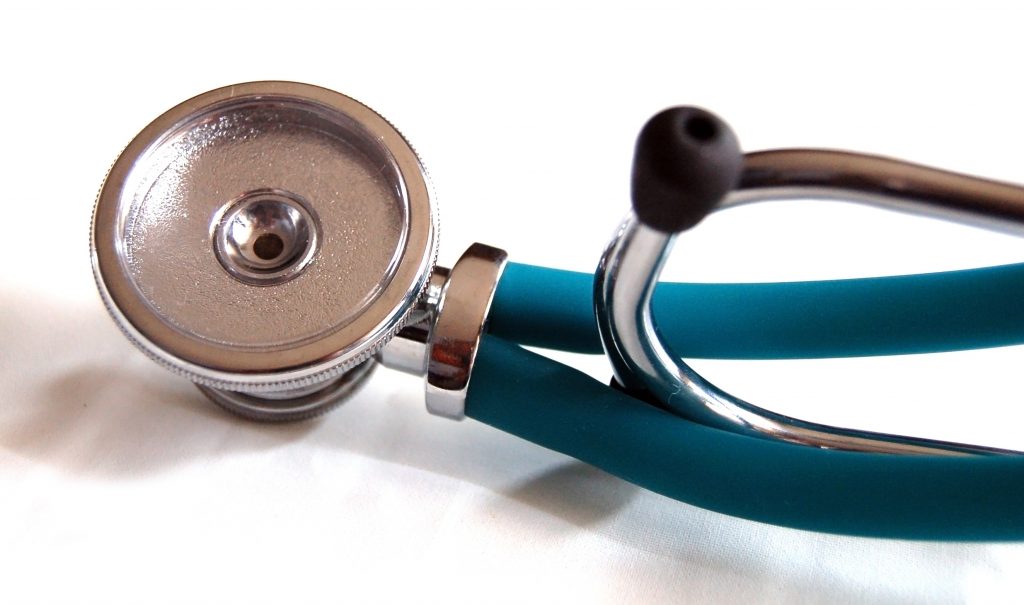 The issue of whether a doctor’s treatment was the cause of a plaintiff’s injury can ultimately be left to a court to decide. If you have been injured after receiving treatment by a physician, it is important to contact a good lawyer to make sure you maximize your odds of winning the compensation you’re entitled to.
The issue of whether a doctor’s treatment was the cause of a plaintiff’s injury can ultimately be left to a court to decide. If you have been injured after receiving treatment by a physician, it is important to contact a good lawyer to make sure you maximize your odds of winning the compensation you’re entitled to. Police officers play an integral role in the health, safety, and welfare of the communities they serve and protect. There are many situations where these officers put their lives on the line. There are also some situations where these officers must aid in the day to day needs of civilians. Such needs may include a police escort in order to retrieve belongings from a residence. Are police officers liable for the harm to a civilian that results after the police leave during a police escort? The Louisiana Third Circuit Court of Appeal affirmed a lower court finding that police officers were not liable in such a situation.
Police officers play an integral role in the health, safety, and welfare of the communities they serve and protect. There are many situations where these officers put their lives on the line. There are also some situations where these officers must aid in the day to day needs of civilians. Such needs may include a police escort in order to retrieve belongings from a residence. Are police officers liable for the harm to a civilian that results after the police leave during a police escort? The Louisiana Third Circuit Court of Appeal affirmed a lower court finding that police officers were not liable in such a situation. If you ever suffer from a slip and fall, car accident, or other personal injuries you may be awarded compensation for your injuries by the court. The legal system relies on juries, as triers of fact, to determine damages suffered by parties, and the amount of compensation the injured person is entitled to. The jury’s obligation is to evaluate the facts in a reasonable manner and assign compensation. When the jury in a personal injury case renders a verdict and announces an award, that amount should not be amended unless there is an obvious error in the award. See
If you ever suffer from a slip and fall, car accident, or other personal injuries you may be awarded compensation for your injuries by the court. The legal system relies on juries, as triers of fact, to determine damages suffered by parties, and the amount of compensation the injured person is entitled to. The jury’s obligation is to evaluate the facts in a reasonable manner and assign compensation. When the jury in a personal injury case renders a verdict and announces an award, that amount should not be amended unless there is an obvious error in the award. See 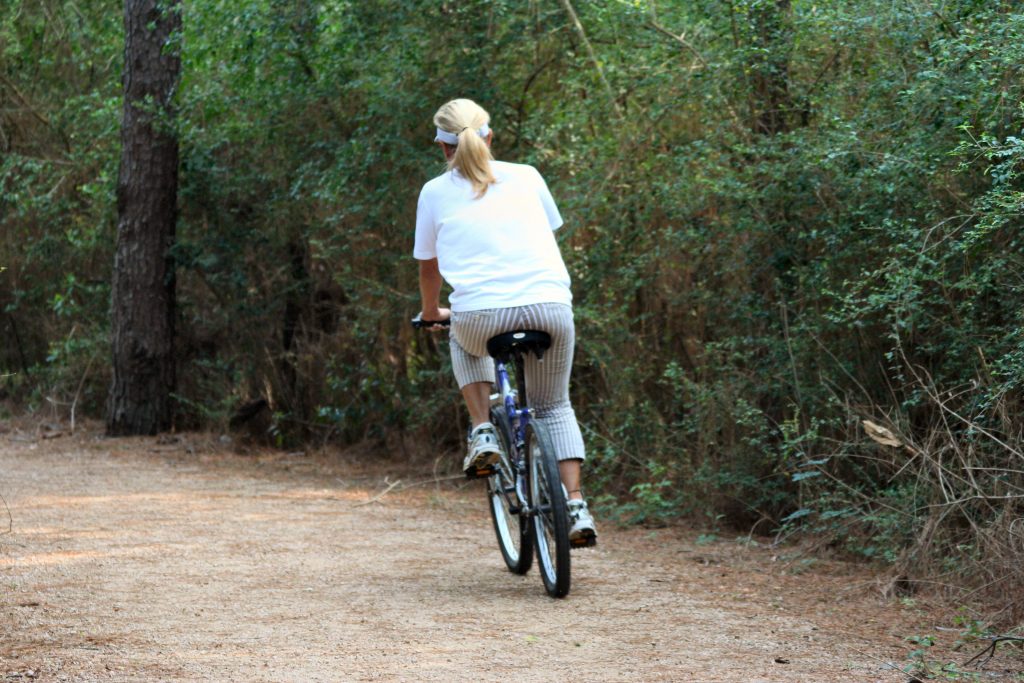 While participating in physical therapy sessions, most people would probably expect to be monitored by a therapist for the length of the session to ensure that things run smoothly. Unfortunately for one woman, Mrs. Laura Joinder, her physical therapist had other plans. As a result, Mrs. Joinder sued the defendant in Ouachita Parish for injuries she suffered while in their care.
While participating in physical therapy sessions, most people would probably expect to be monitored by a therapist for the length of the session to ensure that things run smoothly. Unfortunately for one woman, Mrs. Laura Joinder, her physical therapist had other plans. As a result, Mrs. Joinder sued the defendant in Ouachita Parish for injuries she suffered while in their care.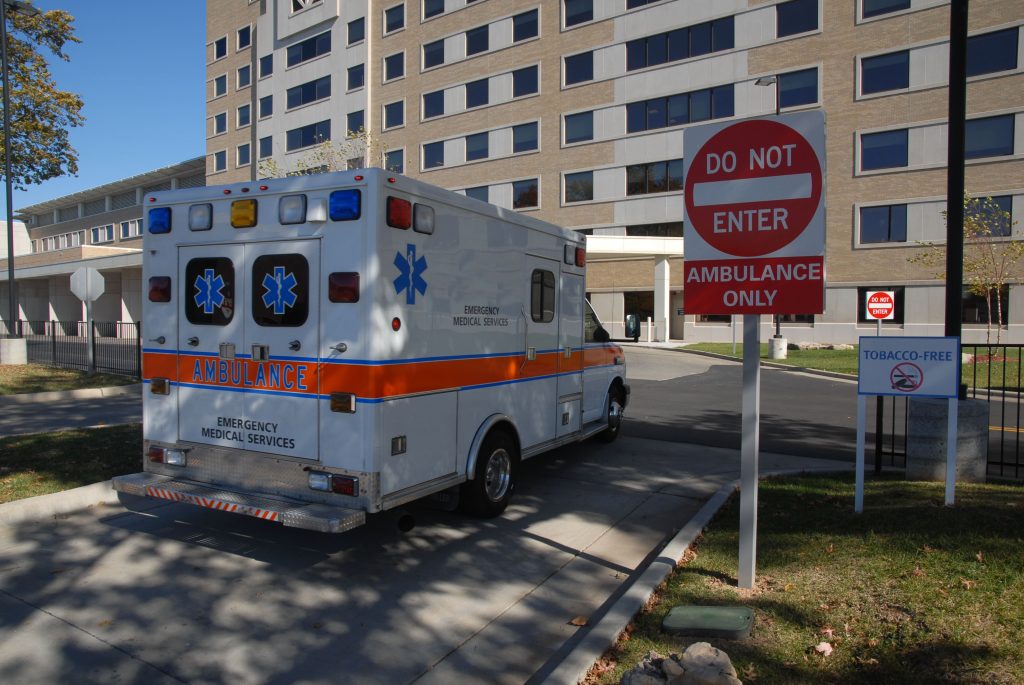 If you are injured in an accident, it is important to be prepared before you testify at your deposition. Otherwise, you may find yourself making statements that opposing counsel can use against you. This is the painful lesson Dwan Jones learned in 2015, when a Louisiana Court of Appeals affirmed a trial court’s dismissal of her case before it even went to trial. Dwan was injured in an automobile accident while riding in the passenger seat of an ambulance that was transporting a patient to the hospital. Based on Jones’ own testimony during a deposition, the Court of Appeals affirmed that Jones had made statements that negated the presence of any genuine dispute of material fact. Had Jones’ answered the questions differently her case may have at least gone to trial, which would have allowed a jury to determine whether her injuries were caused by the ambulance driver’s actions.
If you are injured in an accident, it is important to be prepared before you testify at your deposition. Otherwise, you may find yourself making statements that opposing counsel can use against you. This is the painful lesson Dwan Jones learned in 2015, when a Louisiana Court of Appeals affirmed a trial court’s dismissal of her case before it even went to trial. Dwan was injured in an automobile accident while riding in the passenger seat of an ambulance that was transporting a patient to the hospital. Based on Jones’ own testimony during a deposition, the Court of Appeals affirmed that Jones had made statements that negated the presence of any genuine dispute of material fact. Had Jones’ answered the questions differently her case may have at least gone to trial, which would have allowed a jury to determine whether her injuries were caused by the ambulance driver’s actions. Once a court rules on a motion or a jury verdict is delivered, the losing party faces an uphill battle in getting a reversal.
Once a court rules on a motion or a jury verdict is delivered, the losing party faces an uphill battle in getting a reversal. We live in an age in which modern medicine can do wonders for people suffering from various illnesses and conditions. These drugs are designed to provide patients with the ability to live healthy and fulfilling lives. However, there are always side effects to consider when taking any drug. Each patient should discuss these possibilities with their doctor and make an educated decision whether to take the drugs or not. Even after this “due diligence” there can still be unintended consequences from certain drugs. Through no fault of their own, after having weighed the decision and exploring all of their options, patients may find themselves in much worse condition than what they were in before taking the drug. In cases such as these, a good products liability attorney is essential to securing the relief you’re entitled to.
We live in an age in which modern medicine can do wonders for people suffering from various illnesses and conditions. These drugs are designed to provide patients with the ability to live healthy and fulfilling lives. However, there are always side effects to consider when taking any drug. Each patient should discuss these possibilities with their doctor and make an educated decision whether to take the drugs or not. Even after this “due diligence” there can still be unintended consequences from certain drugs. Through no fault of their own, after having weighed the decision and exploring all of their options, patients may find themselves in much worse condition than what they were in before taking the drug. In cases such as these, a good products liability attorney is essential to securing the relief you’re entitled to. In workers’ compensation cases, the employee has the burden of proving that an on-the-job accident occurred. He or she must do so by a preponderance of evidence. Generally, an employee can do this by presenting witness testimony and documentary evidence. But what happens when there is no witness to the alleged accident? A recent case from the Louisiana Third Circuit Court of Appeal discusses how an employee can establish his or her workers’ compensation claim when there is no witness to the alleged on-the-job injury.
In workers’ compensation cases, the employee has the burden of proving that an on-the-job accident occurred. He or she must do so by a preponderance of evidence. Generally, an employee can do this by presenting witness testimony and documentary evidence. But what happens when there is no witness to the alleged accident? A recent case from the Louisiana Third Circuit Court of Appeal discusses how an employee can establish his or her workers’ compensation claim when there is no witness to the alleged on-the-job injury.